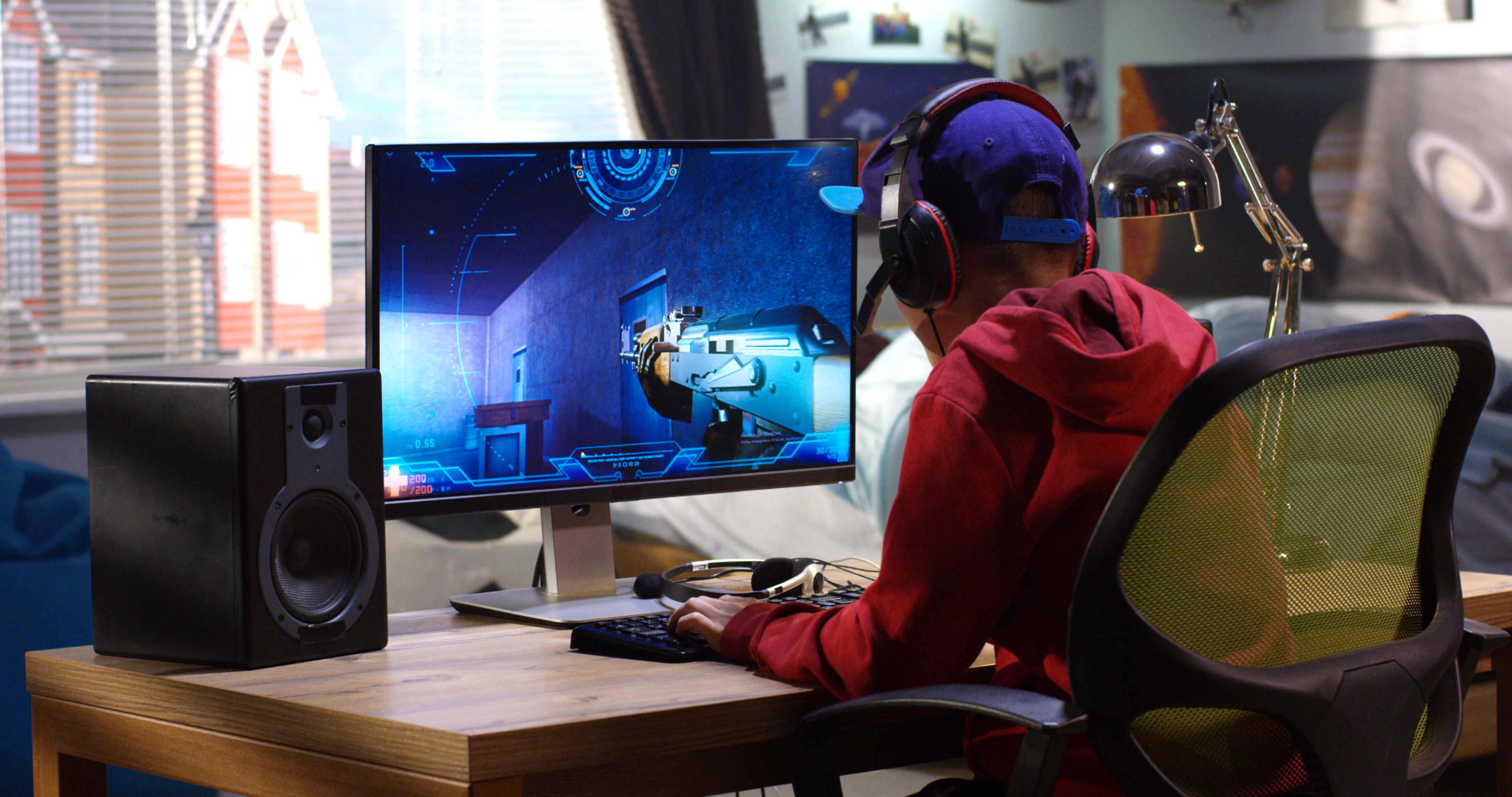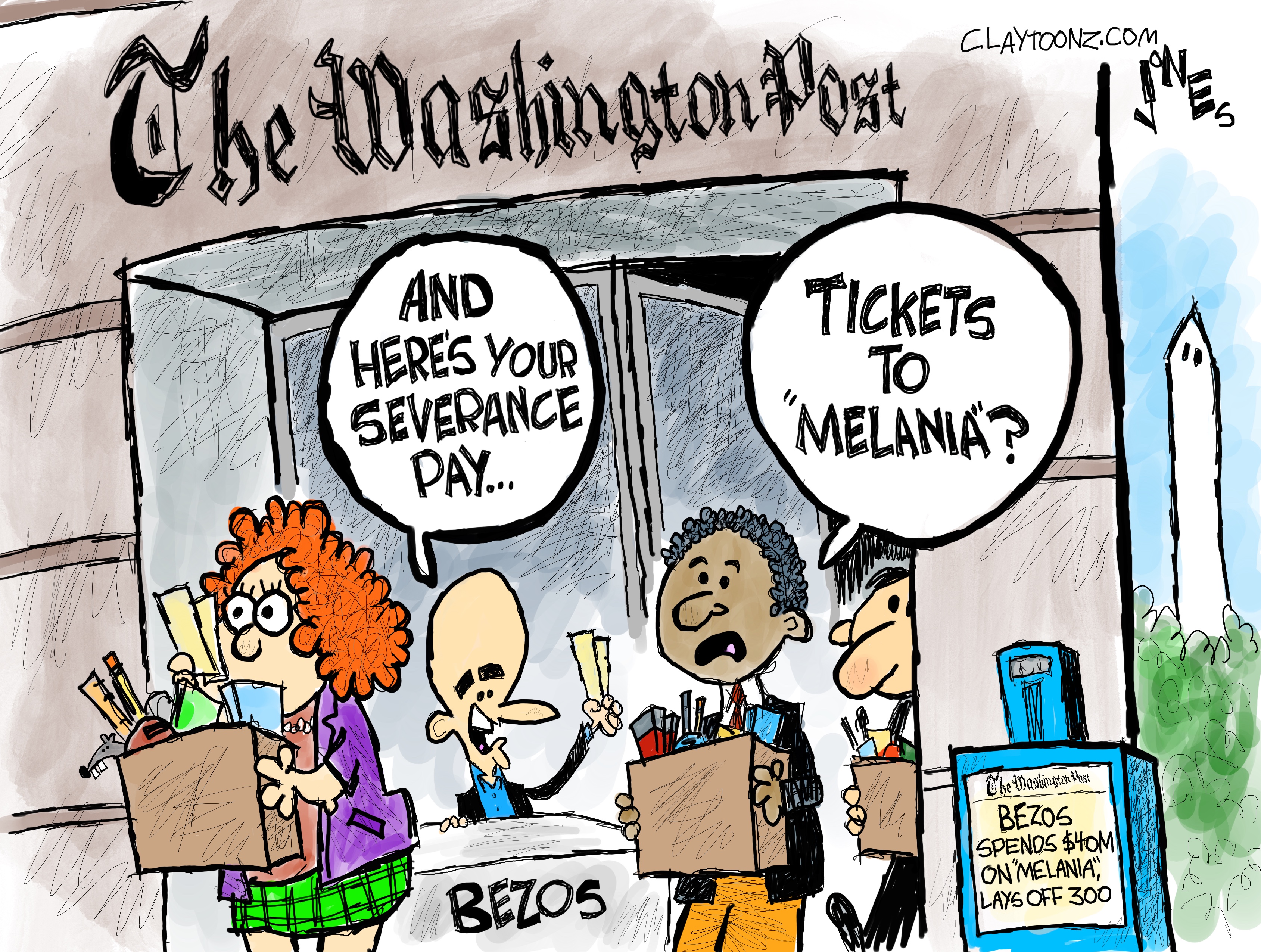Addicted to video games
Lonely young men can find the immersive world of video games more compelling than real life. Some are seeking help in recovery programs.

A free daily email with the biggest news stories of the day – and the best features from TheWeek.com
You are now subscribed
Your newsletter sign-up was successful
Adapted from an article that originally appeared in The New York Times Magazine.
Charlie Bracke can't remember a time when he wasn't into video games. During his childhood, his passion for them didn't cause him any serious problems. But in college at Indiana University Bloomington, everything changed.
If he skipped class or played games until 3 in the morning, no one seemed to care. After a difficult breakup with a longtime high school girlfriend and the death of his grandmother, Bracke sank into a period of severe depression. He started seeing a therapist and taking antidepressants, but by his junior year, he was playing video games all day and seldom leaving his room. Eventually, he was failing most of his courses, so he dropped out and moved back in with his parents in Ossian, Indiana, a town of about 3,000 people, where he got a job at Pizza Hut.
The Week
Escape your echo chamber. Get the facts behind the news, plus analysis from multiple perspectives.

Sign up for The Week's Free Newsletters
From our morning news briefing to a weekly Good News Newsletter, get the best of The Week delivered directly to your inbox.
From our morning news briefing to a weekly Good News Newsletter, get the best of The Week delivered directly to your inbox.
His life there fell into a familiar rhythm: He woke up, went to work, returned home, played video games until late and repeated the whole cycle. "It did not strike me as weird at all," he recalls. It felt a lot like high school, but with work instead of classes. "And the time I used to spend hanging out with friends was gone, because they had moved to different areas," he says. "And I kind of just thought that was the way of the world."
When Bracke was 24, he decided to get his real estate license and move from Indiana to Virginia to work at the same brokerage as his brother Alex, a decision that led to another breakup with another girlfriend and a deep sense of loneliness in a town where, once again, he had no friends. He eventually got in touch with his ex, hoping she would take him back, only to find out she was dating someone else. "At that point, I lost it," he says. By his estimate, he started playing video games about 90 hours a week. He did the bare minimum amount of work required to pay his bills. When it was time to log his progress in the brokerage's internal system, he would just make something up.
His employer got wise to the scheme and put Bracke on probation. Realizing he had a problem, Bracke dismantled his computer, stashed the pieces among a bunch of storage boxes in the garage and tried to focus on work. About a month later, after making a big sale, he talked himself into celebrating by playing League of Legends for an evening. He retrieved the components of his computer, reassembled them and started gaming around 6 p.m. Ten hours later, he was still playing. The week slipped away. He kept playing.
In May, the World Health Organization officially added a new disorder to the section on substance use and addictive behaviors in the latest version of the International Classification of Diseases: "gaming disorder," which it defines as excessive and irrepressible preoccupation with video games, resulting in significant personal, social, academic, or occupational impairment for at least 12 months. The latest edition of the Diagnostic and Statistical Manual of Mental Disorders, the American Psychiatric Association's clinical bible, recognizes "internet gaming disorder" — more or less the same thing — as a condition warranting more research.
A free daily email with the biggest news stories of the day – and the best features from TheWeek.com
Timothy Fong, a professor of addiction psychology at the University of California, Los Angeles, says he is convinced that video-game addiction is real. "It's quite possible and common to have both addiction and another mental or behavioral disorder simultaneously," he told me, like depression or anxiety. "At least half the time, compulsive gamers come in with clinical histories and mind-sets that are essentially the same as patients with heroin addiction, alcoholism, or gambling disorder. They have all the hallmarks."
For too long, in both the medical community and the public consciousness, the conflation of addiction and chemical dependency has stubbornly persisted. Researchers in a wide variety of fields — from psychology to public health — are increasingly pushing back. Addiction is no longer considered synonymous with physiological dependence on a substance, nor can it be reduced to the activity of neurons in a few regions of the brain. Experts now define addiction as a behavioral disorder of immensely complex origins. In the case of video-game addiction, the most vulnerable population seems to be young men like Bracke.
Shortly after Bracke's employers put him on probation, his parents, Sally and Steve, visited him in Virginia. One day, while driving back from the grocery store, Sally worked up the courage to ask her son a question that had been troubling her for some time: "Charlie, are you a gaming addict?" Bracke contemplated the question silently as they drove. Finally he answered: "Yeah, I think I might be."
In the spring of 2015, Bracke was officially kicked off his real estate team. That summer, he stayed at his brother Alex's house to take care of the dogs while Alex and his wife and son were on vacation. On the first day of his stay, he suddenly realized that his brother's life — the home, the family, the steady job and income — was everything he wanted and would never have. This startling epiphany was the prelude to a period of profound self-loathing. He discontinued his antidepressants because he didn't think he deserved them. He stopped bathing regularly. He left his brother's house just twice in nine days. Gaming was the only thing that distracted him from his mental anguish.
By August, he had a detailed suicide plan. About two months before Bracke intended to kill himself, his parents returned to Virginia to celebrate their grandchild's birthday. They surprised Bracke with a visit one afternoon. Although they knew their son was struggling, they didn't know the extent of it. They were shocked at the state of his apartment — cluttered with clothes, trash, and empty pizza boxes — and Bracke's own bedraggled appearance. He knew his gaming had become a terrible problem, he told them, but he felt powerless to stop.
In the following weeks, Sally called every rehab center and addiction hotline number she could find, searching for a program that recognized video-game addiction and knew how to treat it. Every center said it didn't offer such treatment. But one day, an operator interrupted her sobs to tell her that his supervisor had recently mentioned a new rehab center in Washington State called reStart, which specialized in internet and video-game addiction.
Bracke and his parents were overjoyed to have finally found some recourse — but the price was staggering. It would cost about $22,000 for the minimum stay of 45 days, and their health insurance wouldn't cover it. (At the time, there was no official diagnostic code for gaming addiction.) Ultimately, they decided to remortgage their house.
When Bracke was born in the late 1980s, video games were still being assimilated into mainstream American culture. Today they are ubiquitous. Globally, more than two billion people play video games, including 150 million Americans (nearly half the country's population), 60 percent of whom game daily. Video games are now one of the most lucrative sectors of the entertainment industry, having overtaken film, television, music, and books. Games are also the most popular and profitable type of mobile app, accounting for about a third of all downloads and 75 percent of Apple's App Store revenue.
A typical gamer in the United States spends 12 hours playing each week; 34 million Americans play an average of 22 hours per week. In 2018, people around the world spent a collective nine billion hours watching other people play video games on the streaming service Twitch — three billion more hours than the year before. In South Korea, where more than 95 percent of the population has internet access and connection speeds are the fastest in the world, compulsive game play has become a public-health crisis. In 2011, the South Korean government passed the Shutdown Law, which prevents anyone under 16 from playing games online between midnight and 6 a.m.
The fact that video games are designed to be addictive is an open secret in the gaming industry. With the help of hired scientists, game developers have employed many psychological techniques to make their products as "unquittable" as possible. Video games' carefully composed dreamscapes have begun to offer a seductive contrast to the world outside screens. They eliminate real-world consequences of failure and essentially guarantee rewards in exchange for effort. They imbue players with a sense of purpose and accomplishment — precisely the kind of self-worth that can be so hard to attain in their actual lives. For young men like Bracke, who have either not completed a four-year college degree or have not found work equal to their education and skills, video games can become something like a surrogate occupation — a simulacrum of success.
On the evening of Oct. 21, 2015, a relative picked up Bracke from the Seattle airport and dropped him off at reStart's main facility, a large two-story house in Fall City, Washington, surrounded by a garden and acres of forest. He checked in with the staff and joined a small group of young men sitting around a campfire. They were eating hot dogs and conducting their evening meeting, a ritual Bracke would come to know well: Each took his turn sharing what he accomplished that day and what he planned for the next. "I felt accepted," Bracke recalls. "It almost sounds corny to say it, but I got there and immediately felt I had made the right choice."
ReStart opened in 2009, and it remains one of few dedicated long-term rehabilitation programs for internet and video-game addiction in the United States. Hilarie Cash, one of reStart's founders, estimates that 80 percent of clients complete Phase I and that 70 percent complete Phase II. Former clients think it may be a lot less than that; they have seen many friends relapse or leave the program early.
Bracke spent about seven weeks at the house in an initial "detox" phase, following a strict schedule of chores, exercise, meals, group meetings, and therapy sessions. Lights out by 10:30 p.m. No cellphones or computers. One landline for outgoing calls. The program forced him to try new activities — hiking, camping, Frisbee golf — many of which he enjoyed. He developed a "life balance plan," which focused on strategies for responsible technology use after the program. And he learned how to have difficult conversations using a "wheel of communication," which required him to verbalize what he was feeling and thinking and to reiterate what the other person in the conversation had just said.
A huge component of reStart's philosophy is the importance of maintaining relationships. "These guys have almost universally what I would call an intimacy disorder," Cash told me. "They don't really know how to build and maintain intimate relationships. The solution to addiction is connection. We are building a real recovery community with our guys. It's all about building friendship and community that is face to face, in person, rather than online."
The ascendancy of video games has collided with a social crisis that we are only beginning to understand: the profound loneliness of American men. According to a 2018 Cigna survey, more than 40 percent of Americans feel that their relationships are not meaningful and that they are generally isolated from others; 20 percent rarely or never feel close to anyone. Young adults between 18 and 22 score higher on scales of loneliness than any other group. There's good reason to think that single men are uniquely vulnerable to social isolation and its repercussions. Studies suggest that men rely primarily on a partner for emotional intimacy, whereas women are more likely to have additional support from close friends; men in their late 30s lose friends at a faster rate than women; and men are more likely to kill themselves because of prolonged emotional or social detachment.
People who are deprived of a dependable social network, or who have severe difficulty connecting with others, have a much higher risk of both developing an addiction and relapsing. Addiction itself can drastically magnify loneliness. Video-game addiction afflicts between 1 and 8 percent of gamers, according to estimates published by researchers. Self-identified video-game addicts typically single young adult men — the very segment of the population that may be most prone to social detachment.
Cam Adair is perhaps the leading spokesman for the legitimacy of video-game addiction. Like Bracke, he nearly committed suicide but sought help in the 11th hour. In 2011, he posted his story and insights on a blog and received thousands of responses from people with similar experiences. Inspired by this outpouring, Adair founded Game Quitters, an online support community that today has about 75,000 members from 95 countries. "People have been coming forward for years, saying they are really struggling," Adair told me. "What really matters is that you feel you have to keep playing despite it having a negative impact on your life. That's addiction. I think, as a society, we should be saying, 'How can we help?'"
Current diagnostic criteria for addiction are not so much a definitive scientific description as a useful guideline. To insist that addiction must be restricted to certain substances is to presume a level of understanding that we have not yet reached. If addiction is an evolving concept, and an official expansion of that concept would profoundly benefit people who clearly need help, can we justify clinging to the status quo?
Today, Bracke — a cordial, brown-bearded 31-year-old — works at Costco. He recently completed a degree in accounting at Bellevue College and has begun his studies at the University of Washington. He owns a Samsung Galaxy smartphone and an "intentionally crappy" laptop, but he doesn't have an internet connection at home. He hasn't touched video games since starting rehab in 2015. Like Adair, he has become an outspoken advocate for video-game addicts, once appearing on the Today show.
Rehab taught him that in order to stay sober, he would have to do more than avoid video games — he needed to replace them with something else. In Washington, he started reading more. He broadened his social network, making new friends through work, school, and mutual acquaintances. When the weather was nice, he went hiking, took his dog on a long walk, or played Frisbee golf. At home, he enjoyed the occasional board game. "I've tried to branch myself out into a lot of hobbies that I take shallower dives into, rather than having one that occupies everything," he told me.
In September, I visited Bracke at the apartment where he was living at the time. I was greeted by several of his friends and roommates, all young men in their 20s who participated in reStart (they asked to remain unnamed). We talked about their experiences in reStart and their long-term plans. Each of them believed he would have killed himself without some type of formal treatment. Each stressed how important reStart's emphasis on social connection had been to his recovery. And each said that, at least for the time being, he planned to stay in Washington — the place where they all had finally learned, or relearned, how to connect with others outside the context of multiplayer games.
Although each had his own future to focus on, whether school or work or both, they still lived together and encouraged one another in these pursuits. Perhaps they would never fully understand the reasons for their compulsions or distill the culpability of games from all the other elements of their lives. Perhaps it didn't matter anymore. If addiction is the compulsive substitution of an artificially rewarding experience for essential human intimacy, then these men had found its opposite in one another.
-
 Nan Goldin: The Ballad of Sexual Dependency – an ‘engrossing’ exhibition
Nan Goldin: The Ballad of Sexual Dependency – an ‘engrossing’ exhibitionThe Week Recommends All 126 images from the American photographer’s ‘influential’ photobook have come to the UK for the first time
-
 American Psycho: a ‘hypnotic’ adaptation of the Bret Easton Ellis classic
American Psycho: a ‘hypnotic’ adaptation of the Bret Easton Ellis classicThe Week Recommends Rupert Goold’s musical has ‘demonic razzle dazzle’ in spades
-
 Political cartoons for February 6
Political cartoons for February 6Cartoons Friday’s political cartoons include Washington Post layoffs, no surprises, and more